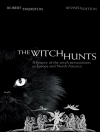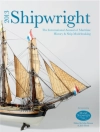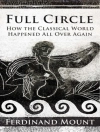In UDR: Declassified, Micheál Smith reveals what the British establishment, the British government and its armed forces knew and had to say about the regiment in recently declassified files. From its formation in 1970 as a locally raised militia, the Ulster Defence Regiment developed into the largest regiment in the British Army. For unionists, service in the UDR was a noble act and often a family tradition; for nationalists, an encounter with the UDR was frequently hostile, often brutal, and sometimes fatal. To the British Army, they were ‘a dangerous species of ally’, and a classic militia regiment which was part of a long tradition of the use of such forces by the British Empire. It was viewed as ‘a safety valve’ for the tempers of loyalist extremism, and it also served as the main source of training, weaponry, and intelligence files for loyalists throughout the conflict. UDR: Declassified is an evidence-based exposé of the UDR through the declassified files of Number 10, the Mo D, and the NIO. The denial of access to history is a part of a continuum of British state efforts to obscure its colonial past. This book is a testimony to the value of defying such efforts and uncovering the truths behind our traumatic past.
About the author
Micheál Smith was born in Dublin and studied Psychology at UCD to postgraduate level before embarking on a varied career as a diplomat with Ireland’s Department of Foreign Affairs and Trade. He was privileged to work as Irish government observer and a liaison for the families at the Bloody Sunday Inquiry in Derry and London. He was Deputy Head of Mission at the Irish embassy in Malaysia, where he was commended for his consular work following the 2004 tsunami. While in the department’s Anglo-Irish Division, and at the British-Irish Intergovernmental Conference in Belfast, he developed a reputation for sound analysis of British-Irish security issues including the overall security context. Micheál relocated permanently to Belfast where he retrained then worked as a mental health and disability advocate. Eventually he came to work with the Pat Finucane Centre as an advocate, where he works with victims, survivors, and families bereaved as a result of the conflict on the island of Ireland. He is author, for the Pat Finucane Centre, of The Impact of the Parachute Regiment in Belfast 1970-73.












